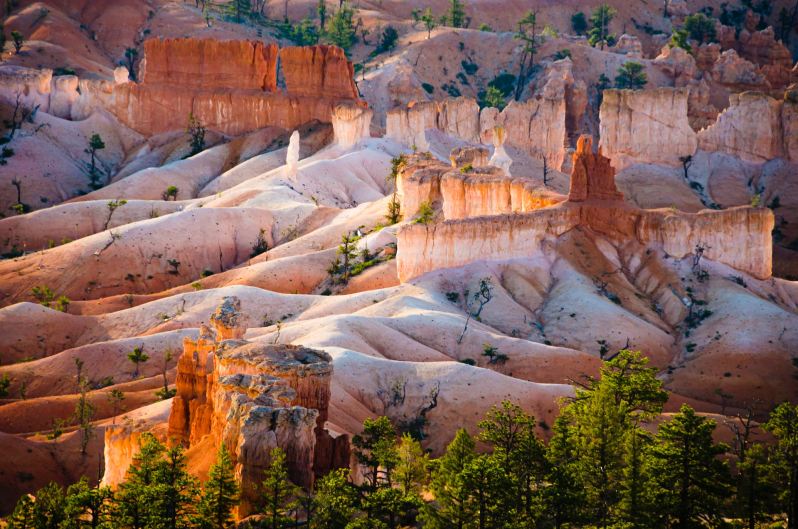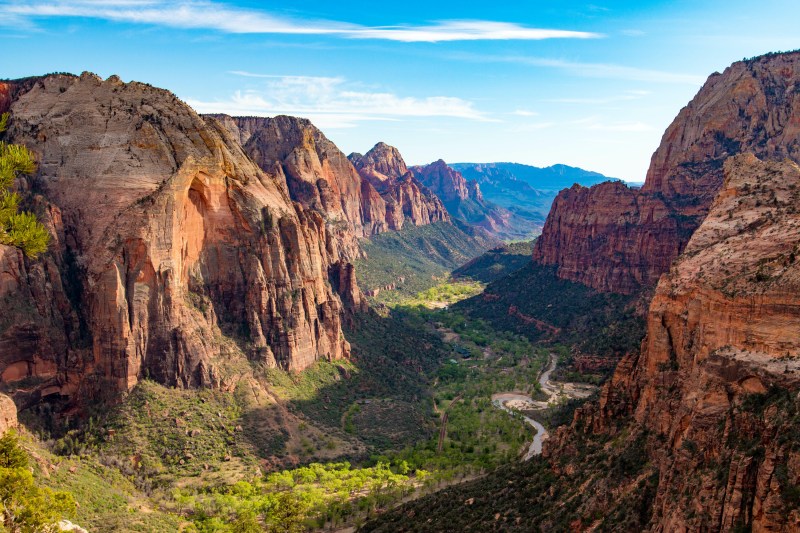
Bryce Canyon and Zion are a couple of Utah’s most amazing national parks, and officials want to keep it that way. Management is constantly seeking to improve visitors’ experiences while preserving these national treasures. In this pursuit, officials are now calling for public comment on several proposals aimed at addressing discrepancies. Some of these proposals are designed to make getting a reservation easier —we’re all for anything that can help us plan a trip in advance — while others include various fee increases. Of course, no one likes paying more, but the aim of these increases is to use the money to keep up standards at the parks. Here’s what you need to know.
Bryce Canyon
Proposal 1: Campground reservations will get a little easier
Right now, a major struggle that Sunset Campground campers face is that reservations can’t be booked in advance unless you want to grab Sunset’s Group Site. This means that many people come all the way up to the campground only to find that every spot is taken.
By comparison, the North Campground has a reservation system through Recreation.gov and has dates available from May through October six months in advance. It’s still a first-come, first-serve situation, but because you can reserve a spot, it has smoothed out many of the hiccups visitors have been experiencing.
Park officials plan to add the Sunset Campground sites to Recreation.gov as well, standardizing the campground experience in the park.
Proposal 2: Some campground fees will go up
The second proposal addresses the campsite fees at both Sunset and North Campgrounds. To simplify the fee structure and ensure fairness, all sites in both campgrounds would move to a:
- Flat fee of $30 per night.
- Senior Pass and Access Pass holders will continue to receive a 50% discount on all campsite reservation fees.
Currently, campgrounds are designated for either tents or RVs and tents, which have fees of $20 and $30 per night, respectively. This means some fees will stay the same, while others will go up slightly. According to the park, this change seeks to provide visitors with a clear understanding of camping costs and make the fee collection process more efficient for park staff. By standardizing the fees, visitors can better plan their budgets, and the park can allocate resources more effectively toward preserving and enhancing the camping experience for all.
Proposal 3: Full moon hike reservations will go online
The third proposal aims to improve access to the highly sought-after full moon hike programs, which offer an enchanting experience under the glow of the moon. In the current system, participants must enter an in-person, same-day lottery for a chance to secure a spot on these popular hikes. Under the proposed changes, the in-person lottery would be replaced with an in-advance online registration system through Recreation.gov.
This adjustment would not only reduce wait times and congestion but would also provide visitors with more time to plan and prepare for this magical adventure. By streamlining the registration process, the park hopes to accommodate a larger number of participants while maintaining the high quality of the full moon hike experience.

Zion National Park
The National Park Service is also seeking public input on proposed changes to campground fees and Wilderness Recreation Permits at Zion National Park in Utah. The fee adjustments for Zion National Park are aimed at funding essential facilities’ maintenance, campsite rehabilitation, and providing rangers for patrolling trails and Wilderness areas.
- Watchman Campground (Standard, Electric Campsite): $30 per night to $45 per night
- Watchman and South Campground (Standard, Non-Electric Campsite): $20 per night to $35 per night
- Lava Point Campground (Standard, Non-Electric Campsite): $20 per night to $25 per night
- Watchman and South Campground (Dump Station fee for non-campers only): No fee to $5
Wilderness Recreation Permit Changes (Proposed):
Much like Bryce Canyon migrating campsite reservations to recreation.gov, Zion proposes migrating the Wilderness Recreation permit system to the site as well.
Day Use Permits:
- Seasonal Lottery (up to months in advance): $5 per application to $6 per application/reservation
- Advance Day Use Reservation (up to months in advance): $5 per reservation to $6 per application/reservation
- Daily Lottery (more than one day before): $5 per application to $6 per application/reservation
- Walk Up Permit (first-come, first-served, the day of or day before trips): No fee to $6 per application/reservation
Day Use Permit Fees (Proposed):
- Up to 2 people: $15 per group to $10 per person per day
- 3 to 7 people: $20 per group to $10 per person per day
- 8 to 12 people: $25 per group to $10 per person per day
Overnight Use Permits:
- Advance Reservation (up to months in advance): $5 per reservation to $20 per reservation
- Walk-up Permits (first-come, first-served, the day of or day before trips): No fee to $20 per booking (applies to every applicant)
Overnight Use Permit Fees (Proposed):
- Up to 2 people: $15 per group to $7 per person per night
- 3 to 7 people: $20 per group to $7 per person per night
- 8 to 12 people: $25 per group to $7 per person per night
Pitch in your two cents
Got an opinion or a suggestion? The National Park Service wants to hear it. You can submit your comment for the Bryce Canyon proposals online here, and the comments for Zion National Park here.



